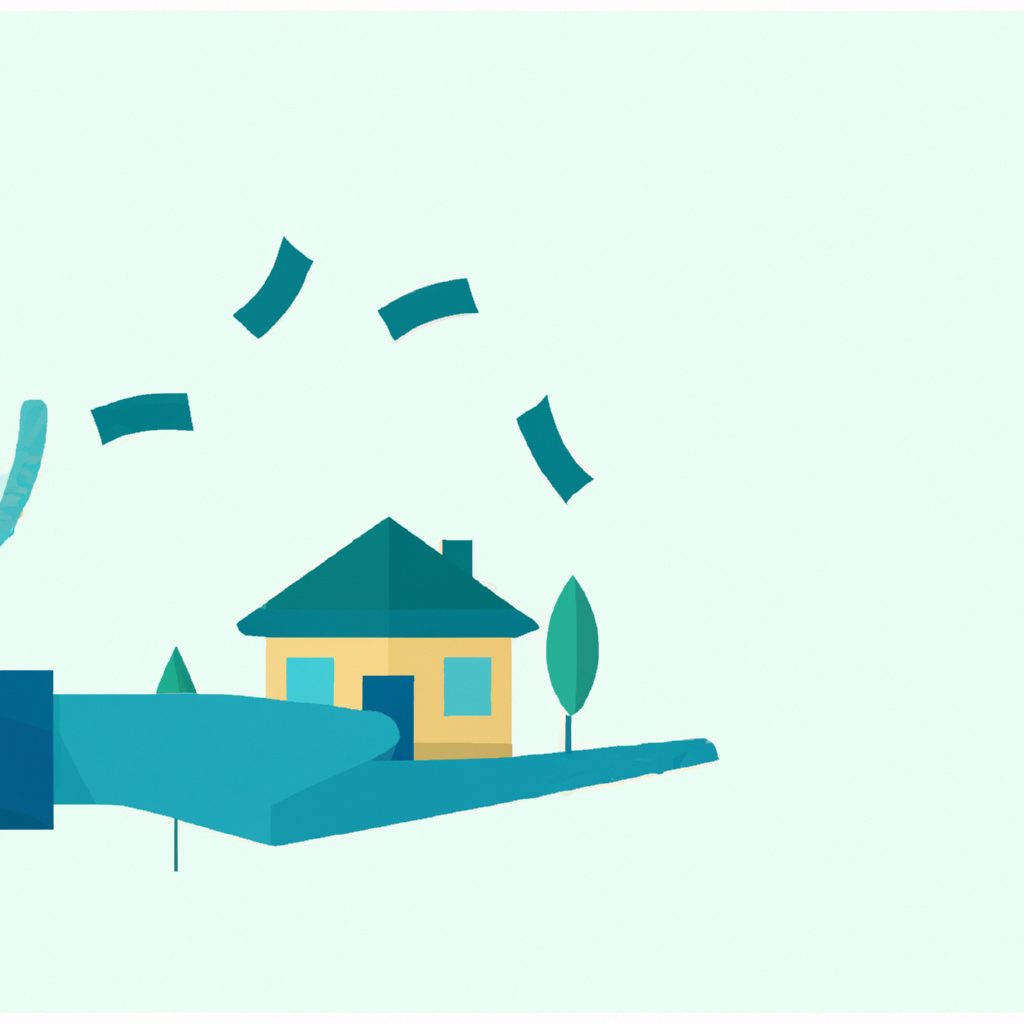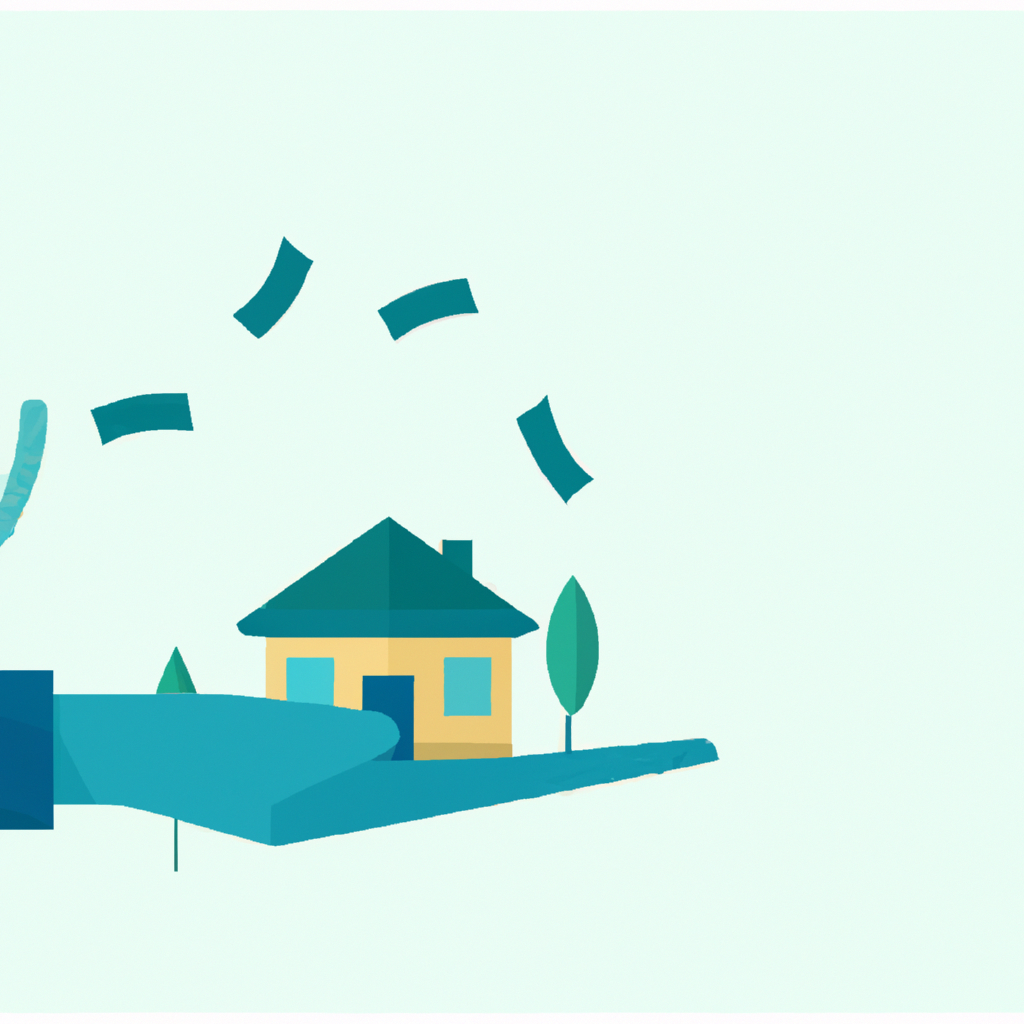Are you approaching retirement age and wondering whether it is a wise decision to pay off your debts before entering this new phase of life? In this article, we will explore the benefits and considerations of paying off your debts before retiring. We will delve into the potential impact on your financial stability, retirement savings, and overall peace of mind. By the end, you will have a clearer understanding of whether tackling your debts should be a priority on your retirement to-do list. So, let’s dive in and find out if paying off debt before retiring is the best course of action for you.

Factors to Consider When Deciding Whether to Pay Off Debt Before Retiring
Current Interest Rates on Debt
One important factor to consider when deciding whether to pay off debt before retiring is the current interest rates on your debt. High-interest rates can significantly increase the cost of borrowing. If the interest rates on your debt are higher than the potential returns on your investments, it may make sense to prioritize paying off the debt before retiring.
Type of Debt
The type of debt you have is another crucial consideration. Some types of debt, such as credit card debt, often have high interest rates, making them more burdensome to carry into retirement. On the other hand, certain types of debt, like a low-interest mortgage, may be more manageable to maintain while still saving for retirement.
Amount of Debt
The amount of debt you have is an essential factor to examine. If your debt is relatively small and manageable, it may make sense to continue making regular payments while also saving for retirement. However, if your debt is significant and has the potential to impede your ability to save for retirement, paying it off before retiring may be a wiser choice.
Other Investment Opportunities
Consider the other investment opportunities available to you. If you have access to investment options with high potential returns, it may be beneficial to prioritize funding those investments instead of paying off low-interest debt. However, always weigh the risks and potential returns carefully, as investing inherently carries a level of uncertainty.
Retirement Savings
The amount of money you have saved for retirement is crucial when deciding whether to pay off debt. If you have saved enough to comfortably retire and still have sufficient funds to pay off the debt, it may make sense to prioritize debt repayment. However, if your retirement savings are lacking, it may be wiser to focus on saving more for retirement and paying off debt gradually.
Monthly Cash Flow
Your monthly cash flow plays a role in determining whether to pay off debt before retiring. If your debt payments are eating into a significant portion of your monthly income, it may be challenging to maintain a comfortable standard of living in retirement. Analyze your cash flow to understand if paying off debt will improve your overall financial situation.
Psychological Benefits
Consider the psychological benefits of being debt-free in retirement. For many individuals, the peace of mind associated with not having debt can greatly outweigh other financial considerations. Being debt-free allows you to enter retirement with a sense of security and freedom from financial stress.
Credit Score
Your credit score may also be impacted by your decision to pay off debt before retiring. If maintaining a high credit score is important to you, paying off debt can help improve it. However, if your credit score is already excellent and you do not plan on applying for new credit, this may be less of a determining factor.
Financial Goals
Evaluate your overall financial goals when making this decision. Determine whether paying off debt aligns with your long-term financial objectives. Consider if you have other financial goals that may take precedence over debt repayment.
Emergency Fund
Consider the status of your emergency fund. It is crucial to have an adequate emergency fund in retirement to handle unexpected expenses. If using a significant portion of your savings to pay off debt will deplete your emergency fund, it may be better to allocate some funds for debt repayment and ensure you have enough saved for emergencies.
Advantages of Paying Off Debt Before Retiring
Reduced Financial Burden
One of the most significant advantages of paying off debt before retiring is the reduced financial burden. Getting rid of your debt obligations can free up your monthly cash flow, allowing you to allocate those funds towards other expenses or retirement savings.
Saving on Interest Payments
By paying off debt before retiring, you can save a significant amount of money on interest payments. Interest charges can accumulate over time and become a considerable expense. Eliminating debt means you can avoid paying any additional interest and redirect those funds towards your retirement or other financial goals.
Lower Debt-to-Income Ratio
Having a lower debt-to-income ratio can be beneficial for your financial well-being, especially in retirement. Lenders and financial institutions often consider this ratio when evaluating your creditworthiness. Paying off debt can help improve your debt-to-income ratio and potentially enhance your financial standing.
Improved Credit Score
Paying off debt can positively impact your credit score. A lower debt balance and a history of on-time payments can improve your creditworthiness, making it easier for you to secure loans or receive favorable interest rates in the future. A good credit score can provide you with additional financial flexibility in retirement.
Increased Monthly Cash Flow
By eliminating debt, you can increase your monthly cash flow. This additional money can be used to cover living expenses, save for retirement, travel, or pursue other personal goals. Having more disposable income in retirement can significantly improve your quality of life and provide you with more financial freedom.
Peace of Mind
Being debt-free can bring a sense of peace and security in retirement. Without the constant worry of meeting debt obligations or the stress of mounting interest charges, you can enjoy your retirement without financial anxiety. Peace of mind is invaluable and can greatly enhance your overall well-being.
Freedom to Pursue Other Goals
Paying off debt before retiring gives you the freedom to pursue other financial and personal goals. Whether it’s starting a new business, traveling the world, or contributing to charitable causes, having financial freedom allows you to allocate your resources towards endeavors that truly matter to you.
Disadvantages of Paying Off Debt Before Retiring
Opportunity Cost of Not Investing
One potential disadvantage of paying off debt before retiring is the opportunity cost of not investing. If your debt has a low-interest rate, you may be missing out on potential investment opportunities that could offer higher returns. It’s important to carefully analyze the potential returns on investments compared to the interest rates on your debt.
Potential Lower Returns than Debt Interest Rates
Investments come with inherent risks, and there’s no guarantee of earning higher returns than the interest rates on your debt. If you decide to invest instead of paying off debt, you run the risk of earning lower returns, which could result in a net loss when compared to the interest charges on your debt.
Limited Liquid Assets
By prioritizing debt repayment, you may tie up a significant portion of your assets instead of keeping them liquid. This may limit your ability to access funds quickly in case of emergencies or unexpected expenses. It’s crucial to strike a balance between paying off debt and maintaining a sufficient level of liquid assets for financial security.
Impact on Retirement Savings
Channeling funds towards debt repayment may reduce the amount you can contribute to your retirement savings. While paying off debt is important, it’s equally crucial to ensure you have enough saved for retirement. It may be necessary to find a balance between debt repayment and retirement savings to secure your financial future.
Missed Tax Benefits
Some types of debt, such as mortgages or student loans, offer tax benefits through deductions or credits. By paying off this debt early, you may miss out on these tax advantages. Before deciding to pay off debt, consider the potential tax benefits associated with that debt and how they may impact your overall financial situation.
Loss of Debt Deductions
Similar to missed tax benefits, paying off debt before retiring may result in the loss of valuable deductions. Deductions for mortgage interest or student loan interest can help reduce your taxable income. If these deductions provide significant tax savings, it may be worth considering their impact before paying off debt.
Risk of Depleting Emergency Fund
Prioritizing debt repayment can deplete your emergency fund, leaving you vulnerable to unexpected expenses. It’s crucial to have a robust emergency fund in retirement to cover medical bills, home repairs, or any other unforeseen situations. Make sure to evaluate the potential impact of debt repayment on your emergency fund before making a decision.
Psychological Impact of Lacking Savings
While being debt-free offers psychological benefits, lacking significant savings in retirement can also have an impact on your mental well-being. Striking a balance between debt repayment and saving for retirement can help ensure that you have the financial resources needed to enjoy a comfortable and secure retirement.

Considerations for Different Types of Debt
Mortgage
Assess the interest rate and terms of your mortgage when deciding whether to prioritize its repayment before retiring. If you have a low-interest mortgage and plan to stay in your home, it may be more advantageous to carry the debt into retirement and allocate funds towards other financial goals.
Credit Card Debt
Credit card debt often carries a high interest rate, making it more burdensome to maintain in retirement. If you have significant credit card debt, it may be wise to prioritize its repayment before retiring to avoid excessive interest charges.
Student Loans
The decision regarding student loan repayment depends on various factors, such as interest rates and potential tax advantages. While it’s important to pay off student loans to reduce debt, it’s also crucial to assess the long-term impact of student loan repayment on your financial well-being.
Car Loans
Car loans typically have lower interest rates compared to credit card debt, but higher interest rates than mortgages. Consider the interest rate on your car loan and evaluate whether it makes financial sense to prioritize its repayment before retiring.
Other Loans
Other loans, such as personal loans or home equity loans, should be evaluated based on their interest rates and terms. Consider the overall impact of these loans on your financial situation and prioritize their repayment accordingly.
Alternatives to Paying Off Debt Before Retiring
Debt Consolidation
Debt consolidation combines multiple debts into a single loan with potentially lower interest rates and more favorable terms. It allows you to simplify your debt payments and potentially decrease the overall amount paid over time.
Refinancing
Refinancing involves replacing an existing debt obligation with a new loan that ideally offers better terms and conditions. By refinancing, you can potentially lower your interest rate or extend the repayment period, thereby reducing your monthly payment and improving your cash flow.
Restructuring Payment Terms
In some cases, contacting your creditors and discussing the possibility of restructuring payment terms may be an option. This could involve negotiating a lower interest rate or temporarily reducing the monthly payments to better align with your financial situation.
Increasing Income Sources
Boosting your income sources through part-time work, freelance opportunities, or passive income can help you handle debt repayment without sacrificing retirement savings. Additional income can provide the financial flexibility to pay off debt while still contributing to retirement funds.
Balancing Debt Payoff with Savings
Striking a balance between debt repayment and saving for retirement is essential. Evaluate your financial situation to determine the most effective allocation of funds. This may include making minimum debt payments while maximizing contributions to retirement savings.
Utilizing Retirement Savings Strategically
If you have a substantial retirement savings account, consider utilizing it strategically to pay off debt. However, exercise caution when tapping into retirement funds, as there may be tax implications or penalties associated with early withdrawals.
Strategies to Pay Off Debt Before Retirement
Snowball Method
The snowball method entails prioritizing the repayment of debts with the lowest balances first while making minimum payments on other debts. As each debt is paid off, the freed-up funds are then redirected towards the next debt, creating a snowball effect that accelerates debt repayment.
Avalanche Method
The avalanche method involves prioritizing the repayment of debts with the highest interest rates first. By focusing on high-interest debts, you can save money on interest charges and pay off the entire debt more efficiently.
Debt Negotiation
In certain cases, it may be possible to negotiate with your creditors to reduce the total amount of debt owed or arrange for more favorable repayment terms. Debt negotiation can help expedite the repayment process and potentially lower the total cost of debt.
Credit Counseling
Credit counseling involves working with a professional who can help you create a personalized debt repayment plan. They can provide guidance on budgeting, debt management strategies, and negotiating with creditors.
Debt Management Plans
A debt management plan (DMP) is a formal arrangement between a debtor and their creditors. With the help of a credit counseling agency, a DMP is designed to streamline debt repayment by consolidating multiple debts into a single monthly payment.
Debt Settlement
Debt settlement involves negotiating with creditors to reduce the overall debt amount owed. While debt settlement can offer significant savings, it may negatively impact your credit score and could have tax implications.
Budgeting and Expense Management
Creating a comprehensive budget and diligently managing your expenses can free up additional funds for debt repayment. By identifying areas where you can cut back on spending, you can allocate more money towards paying off your debt.
Increasing Income
Increasing your income can help accelerate the debt repayment process. Explore opportunities for salary increases, promotions, or additional sources of income to boost your debt payoff efforts.
Seeking Professional Advice
Consulting with a Financial Advisor
It is advisable to consult with a financial advisor who specializes in retirement planning and debt management. They can provide personalized guidance based on your unique financial situation and help you make informed decisions.
Speaking with a Tax Specialist
A tax specialist can provide valuable insights into the potential tax implications of paying off debt before retiring. They can help you understand the tax benefits associated with certain types of debt and ensure that you optimize your tax situation.
Credit Counseling Services
Credit counseling services can offer expert guidance and support, particularly in the realm of debt repayment. They can help you create a realistic plan, negotiate with creditors, and provide financial education to set you on the path to success.
Retirement Planning Experts
Retirement planning experts can provide valuable advice regarding the optimal use of your retirement savings and how to balance debt repayment with saving for retirement. They can help you strategize and plan for a secure financial future.
Debt Relief Agencies
Debt relief agencies specialize in helping individuals manage and eliminate their debts. They can provide various options for debt relief, including debt consolidation, negotiation, and settlement.
Personal Considerations and Assessment
Risk Tolerance
Consider your risk tolerance when deciding whether to pay off debt before retiring. Some individuals prefer the peace of mind of being debt-free, while others may be comfortable managing debt with the potential for higher investment returns.
Individual Goals and Priorities
Your individual goals and priorities should play a significant role in your decision-making process. Assess what matters most to you – whether it’s being debt-free, achieving specific financial milestones, or pursuing personal passions.
Health and Longevity
Evaluate your health and anticipated longevity when considering when to pay off debt. If you expect a longer retirement and are in good health, you may have more time to pay off debt gradually. However, if health concerns arise, you may prioritize debt repayment to ensure financial stability.
Spousal Considerations
If you have a spouse or partner, their financial situation and goals should also be taken into account. You may need to work together to determine the best course of action regarding debt repayment before retiring.
Financial Discipline
Be honest with yourself about your financial discipline and ability to manage debt responsibly. If you tend to overspend or struggle with debt repayment, it may be in your best interest to prioritize paying off debt before retiring.
Conclusion
Deciding whether to pay off debt before retiring is a complex and personal decision. It requires careful evaluation of various factors, including interest rates, the type and amount of debt, retirement savings, and other financial goals. While there are clear advantages to paying off debt, such as reduced financial burden and improved credit scores, there can also be disadvantages, including missed investment opportunities and limited liquid assets. It is essential to consider personal considerations, seek professional advice when necessary, and assess individual goals and priorities. Ultimately, finding the right balance between debt repayment and saving for retirement is the key to financial security and a comfortable retirement.

